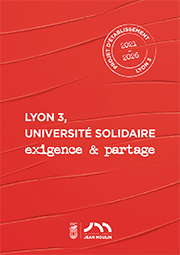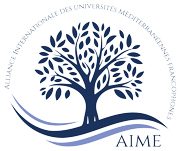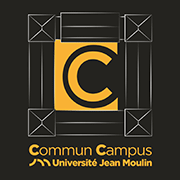AccueilRechercheProgrammes et productions scientifiquesThèsesThèses soutenuesThèses soutenues - 2006-2021Thèses soutenues - 2021
-
Partager cette page
- Recherche,
- Philosophie,
CUVEREAUX Sandie
Extractions minières et droits fondamentaux
Publié le 7 février 2022 – Mis à jour le 7 février 2022
Thèse en Droit, soutenue le 7 juillet 2021.
En opérant une distinction entre exploitation minière et extraction minière, cette thèse analyse les enjeux du lien entre droits fondamentaux et droit minier tant pour les acteurs directs du secteur extractif (exploitant, concessionnaire, inventeur, explorateur, professionnels de la mine) que pour les acteurs indirects (voisins de la mine, communautés locales, collectivités locales métropolitaines et d’outre mers et administrations). Elle montre comment le cycle de vie d’un site minier, pose la question de l’intégration des droits fondamentaux dans le management du risque ainsi que dans la gestion du site d’extraction, de son implantation à sa fermeture. Cette analyse est complexifiée par l’hétérogénéité du territoire français (notamment ultra-marins) et l’appréhension par le droit des différences culturelles. Face aux enjeux de la transition énergétique et ceux liés à la santé publique, cette thèse, renforcée par un stage de recherche de terrain de 6 mois au Québec, illustre la difficulté à assurer en droit positif, la réalité d’un compromis entre les enjeux sociaux et les enjeux économiques. Le raisonnement soutenu est étayé par le concept de « mine responsable » développé par Robert Goodland, et propose des outils juridiques pour réaliser les conditions de ce compromis.
Mots-clés : droit minier français, droit de l’environnement, installations minières, droits fondamentaux, droit à l’information environnementale, acceptabilité sociale, mine responsable.
By making a distinction between mining industry and extracting industry, this study present the current practices and issues at stake between Fundamental Rights and mining law for all the stakeholders both direct (industrialists, merchants, mine operators and professionals) or indirect (the local neighbour communities, the local authority from city areas, overseas department or the state), involved in the process. First, this study shows, on the one hand, all the stages in the life of a mining site and raises the issue of integrating the Fundamental Rights in the disaster risk management as well as the extraction site handling from the determination of its location up to its closing down. On the other hand, this analysis has been complicated by the wide differences of the French land use (notably overseas France) and the difficulty under French law to handle the cultural differences resulting from it. Aware of the energy transition issues and the respect to public health challenges, this study, enhanced by an effective recent six-month-research work in Quebec, points out the difficulties of ensuring, in terms of positive law, a sensible compromise between the social issues on one side and the economic stakes on the other. Eventually, the followed reasoning in this law thesis is based on a report about « responsible mining » outlined by Robert Goodland and provides the needed tools for achieving all the conditions to come up with a fair compromise solution.
Keywords : French mining law, environmental law, mining title, mineral and hydrocarbon, mine buildings, mining activities, EC competition law, Fundamental Rights, responsible mining, social and environmental licence, Overseas law.
Directeur(trice) de thèse : Philippe BILLET
Membres du jury :
Mr BILLET Philippe, Directeur de thèse, Professeur des universités, Université Jean Moulin, Lyon 3, France,
Mme CHAMPEIL-DESPLATS Véronique, Rapporteur, Professeure des Universités, Université Paris Nanterre, France,
Mr KROLIK Christophe, Rapporteur, Professeur, Université Laval, Québec, Canada,
Mr FONBAUSTIER Laurent, Professeur des universités, Université Paris Sud, Sceaux, France,
Mr PHILIP-GAY Mathilde, Professeure des Universités, Université Jean Moulin, Lyon 3, France.
Président(e) du jury : Mathilde PHILIP-GAY
Documentation
Mise à jour : 7 février 2022







